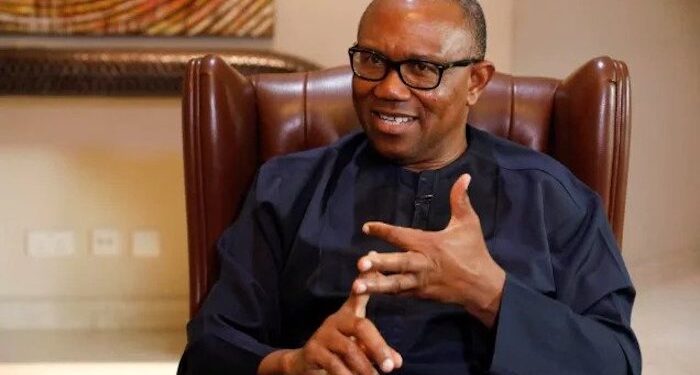Peter Obi, the presidential candidate of the Labour Party, has condemned the recent introduction of a cybersecurity levy by the Central Bank of Nigeria (CBN), arguing that it exacerbates the challenges facing an already struggling economy.
In a statement posted on his X account, Obi expressed deep concern over the government’s decision, stating that such policies drive citizens deeper into poverty while undermining the country’s economic competitiveness.
He emphasized the unreasonable imposition of additional taxes on Nigerian citizens who are already grappling with severe economic hardships, particularly highlighting the impact on trading capital for businesses already facing challenges from currency devaluation and high inflation rates.
Obi criticized the government’s approach, stating, “The introduction of yet another tax, in the form of Cybersecurity Levy, on Nigerians who are already suffering severe economic distress is further proof that the government is more interested in milking a dying economy instead of nurturing it to recovery and growth.”
He pointed out that the levy is imposed on trading capital rather than profit, further eroding businesses’ remaining capital and making the economic environment less competitive.
Questioning the rationale behind burdening citizens with financing all government activities individually, Obi criticized the government’s failure to alleviate economic pressures by introducing new taxes instead of reducing existing ones, particularly during a period of heightened inflation.
He also raised concerns about the transparency and accountability surrounding the utilization of the cybersecurity fund and questioned the role of the office of the national security adviser in revenue collection.
Obi’s critique reflects broader concerns among stakeholders about the impact of the cybersecurity levy on the Nigerian economy and underscores the need for transparent and equitable economic policies that prioritize growth and recovery.


